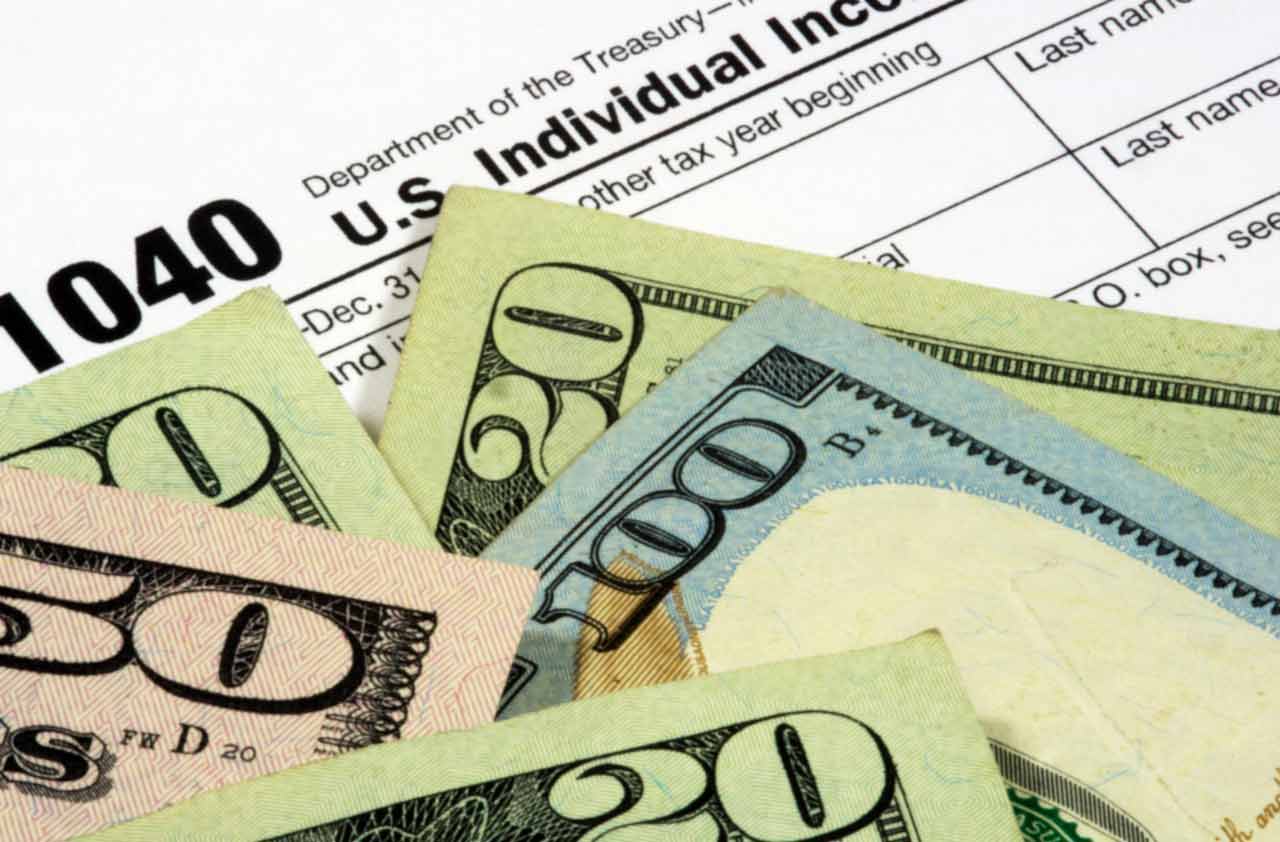3 Game-Changers for Investors in the New House Tax Plan
While the newest tax plan is still in its early stages, it's not too early to start thinking about how you may be affected.


Profit and prosper with the best of Kiplinger's advice on investing, taxes, retirement, personal finance and much more. Delivered daily. Enter your email in the box and click Sign Me Up.
You are now subscribed
Your newsletter sign-up was successful
Want to add more newsletters?

Delivered daily
Kiplinger Today
Profit and prosper with the best of Kiplinger's advice on investing, taxes, retirement, personal finance and much more delivered daily. Smart money moves start here.

Sent five days a week
Kiplinger A Step Ahead
Get practical help to make better financial decisions in your everyday life, from spending to savings on top deals.

Delivered daily
Kiplinger Closing Bell
Get today's biggest financial and investing headlines delivered to your inbox every day the U.S. stock market is open.

Sent twice a week
Kiplinger Adviser Intel
Financial pros across the country share best practices and fresh tactics to preserve and grow your wealth.

Delivered weekly
Kiplinger Tax Tips
Trim your federal and state tax bills with practical tax-planning and tax-cutting strategies.

Sent twice a week
Kiplinger Retirement Tips
Your twice-a-week guide to planning and enjoying a financially secure and richly rewarding retirement

Sent bimonthly.
Kiplinger Adviser Angle
Insights for advisers, wealth managers and other financial professionals.

Sent twice a week
Kiplinger Investing Weekly
Your twice-a-week roundup of promising stocks, funds, companies and industries you should consider, ones you should avoid, and why.

Sent weekly for six weeks
Kiplinger Invest for Retirement
Your step-by-step six-part series on how to invest for retirement, from devising a successful strategy to exactly which investments to choose.
Nobody likes paying taxes. Our current tax code has been called burdensome, unfair and overly complex. Yet, the thought of doing your tax return on a postcard — as touted by House Ways & Means Committee Chairman Kevin Brady, R-Texas — may sound appealing to some taxpayers, especially investors.
SEE ALSO: 4 Year-End Tax-Savings Tips to Handle Before Thanksgiving
That’s not all. The House GOP plan released Nov. 2 includes numerous tax code changes that could affect your future filing. Here are a few highlights:
- Fewer tax brackets — from seven (ranging from 10% to 39.6%) to four brackets (12%, 25%, 35% and 39.6%);
- Almost doubling the standard deduction (to $12,000 for individuals and $24,000 for married couples), but eliminating personal exemptions (currently you’re allowed to claim a $4,050 personal exemption for yourself, your spouse and each dependent);
- Retaining the deductibility of 401(k) contributions;
- Increasing the child tax credit to $1,600 (up from $1,000);
- Allowing taxpayers to deduct property taxes up to $10,000; and
- Limiting the deduction of mortgage interest for newly acquired homes to $500,000 (down from $1 million today).
The proposal is just a starting point. There will be many additional revisions and changes as legislation winds its way through Congress and to the president’s desk for final enactment.
From just $107.88 $24.99 for Kiplinger Personal Finance
Become a smarter, better informed investor. Subscribe from just $107.88 $24.99, plus get up to 4 Special Issues

Sign up for Kiplinger’s Free Newsletters
Profit and prosper with the best of expert advice on investing, taxes, retirement, personal finance and more - straight to your e-mail.
Profit and prosper with the best of expert advice - straight to your e-mail.
But let’s take a closer look at three changes proposed by House tax writers that could be very beneficial for certain investors.
Repeal of the Alternative Minimum Tax
The current form of AMT was enacted in 1969. It was originally designed to ensure wealthy taxpayers paid their fair share of taxes. The IRS did not want them to take excessive tax breaks and avoid paying tax.
When enacted, AMT only affected a few hundred thousand taxpayers. But today, because incomes have increased for many, it has blossomed to ensnaring upwards of 5 million. Many of these folks are high-income taxpayers (most often filers making between $200,000 and $1 million), but not necessarily the wealthy people that the IRS intended to hit. They certainly aren’t using “tax loopholes” to avoid paying tax.
AMT is essentially a separate tax system. Each taxpayer’s numbers are run through the calculations for “regular” tax and for AMT. The taxpayer then ends up paying the higher of the two.
But AMT can especially hit taxpayers who have significant investment income. A situation where I often see AMT is when a taxpayer has a large capital gain (called a preference item).
For example, assume someone has a $1 million long-term capital gain on the sale of stock. I have to explain to them that the tax will be 20%, plus net investment income tax, plus possibly an adjustment for AMT. You also have to consider state income taxes. When you bundle all this together, the rate can be in excess of 30% (depending on the state). But each client’s situation is unique.
Repealing AMT will almost certainly benefit taxpayers who incur significant long-term capital gains. I’d score it a victory for investors if repeal makes it into law.
See Also: How Losing a Spouse Could Boost a Survivor's Taxes
Changes to the Estate Tax
This is a significant change for a small number of very wealthy Americans. Since 1916, the United States has taxed the estates of the nation’s wealthiest deceased taxpayers. Currently, less than 0.2% of the U.S. population pay estate taxes. Under the new proposal, the exemption is doubled, and the estate tax would be repealed after six years.
The estate tax currently applies to the “gross estate.” This typically includes all the decedent’s assets, including investments (stocks, bonds, etc.), real estate and other tangible property. It also consists of the value of the decedent’s business interests.
Estates can deduct specific items like debts, funeral expenses, legal costs, accounting fees and estate taxes paid to states. The taxable estate is equal to the gross estate less any allowable deductions.
A credit is then applied that exempts a significant portion of the estate. For 2017, the effective exemption is $5.49 million for individuals. Any value of the estate over $5.49 million is taxed at the top rate of 40%. Under the new proposal, the exemption would be doubled to approximately $11 million for individuals and then be phased out after six years.
Because of the significant exemption applied, any decedent subject to the estate tax would likely have investments. For people with large estates, they often were able to get around the rules through quality estate planning. In either case, the revised exemption and ultimate repeal of the estate tax could result in a windfall for beneficiaries of large estates. Another win for wealthy investors with very large estates.
Pass-through entities
Many taxpayers invest in so-called pass-through entities, such as partnerships, limited liability companies (LLCs) or S corporations. These entities do not pay income tax as any income, losses, deductions and credits “pass-through” to the individual owners and are taxed at their tax rate.
S corporations have become more popular in recent years and are a favorite of many business owners. Under the proposal, owners who conduct business as sole proprietorships, partnerships and S corporations would get a big cut in the top tax rate, from 39.6% under current law to 25% under the House plan. However, this favorable rate would not apply to wages paid on form W-2. Those wages would be subject to the owner’s marginal tax rate.
Still, this change could stimulate the investment in pass-through entities. With the preferred rate, we may see more investors making passive investments in operating businesses. This could stimulate economic development, but we will have to wait and see.
Summary
The U.S. tax code hasn’t had a major overhaul since the 1980s. Many believe that our tax code is broken. Even if President Trump and congressional Republicans can enact a new tax overhaul, the contours of the final plan have yet to be drawn. What we do know is that tax law is very complex. I think we need more transparency in the tax code. Taxpayers need to understand how the tax law affects them.
You may not be able anytime soon to file your tax return on a postcard, as Kevin Brady would like. But if congressional tax writers have their way, you may find a few new opportunities that can reduce your tax bill.
See Also: 1 Tax Shift Most People Miss in Retirement
Profit and prosper with the best of Kiplinger's advice on investing, taxes, retirement, personal finance and much more. Delivered daily. Enter your email in the box and click Sign Me Up.

Paul Sundin is a CPA and tax strategist. With a worldwide client base, he specializes in tax planning and tax structuring for individuals, entrepreneurs and the real estate industry. In addition to being a CPA, he is also an author, speaker and consultant. His professional mission is to educate taxpayers on tax strategies and personal finance.
-
 Look Out for These Gold Bar Scams as Prices Surge
Look Out for These Gold Bar Scams as Prices SurgeFraudsters impersonating government agents are convincing victims to convert savings into gold — and handing it over in courier scams costing Americans millions.
-
 How to Turn Your 401(k) Into A Real Estate Empire
How to Turn Your 401(k) Into A Real Estate EmpireTapping your 401(k) to purchase investment properties is risky, but it could deliver valuable rental income in your golden years.
-
 My First $1 Million: Retired Nuclear Plant Supervisor, 68
My First $1 Million: Retired Nuclear Plant Supervisor, 68Ever wonder how someone who's made a million dollars or more did it? Kiplinger's My First $1 Million series uncovers the answers.
-
 Don't Bury Your Kids in Taxes: How to Position Your Investments to Help Create More Wealth for Them
Don't Bury Your Kids in Taxes: How to Position Your Investments to Help Create More Wealth for ThemTo minimize your heirs' tax burden, focus on aligning your investment account types and assets with your estate plan, and pay attention to the impact of RMDs.
-
 Are You 'Too Old' to Benefit From an Annuity?
Are You 'Too Old' to Benefit From an Annuity?Probably not, even if you're in your 70s or 80s, but it depends on your circumstances and the kind of annuity you're considering.
-
 In Your 50s and Seeing Retirement in the Distance? What You Do Now Can Make a Significant Impact
In Your 50s and Seeing Retirement in the Distance? What You Do Now Can Make a Significant ImpactThis is the perfect time to assess whether your retirement planning is on track and determine what steps you need to take if it's not.
-
 Your Retirement Isn't Set in Stone, But It Can Be a Work of Art
Your Retirement Isn't Set in Stone, But It Can Be a Work of ArtSetting and forgetting your retirement plan will make it hard to cope with life's challenges. Instead, consider redrawing and refining your plan as you go.
-
 The Bear Market Protocol: 3 Strategies to Consider in a Down Market
The Bear Market Protocol: 3 Strategies to Consider in a Down MarketThe Bear Market Protocol: 3 Strategies for a Down Market From buying the dip to strategic Roth conversions, there are several ways to use a bear market to your advantage — once you get over the fear factor.
-
 For the 2% Club, the Guardrails Approach and the 4% Rule Do Not Work: Here's What Works Instead
For the 2% Club, the Guardrails Approach and the 4% Rule Do Not Work: Here's What Works InsteadFor retirees with a pension, traditional withdrawal rules could be too restrictive. You need a tailored income plan that is much more flexible and realistic.
-
 Retiring Next Year? Now Is the Time to Start Designing What Your Retirement Will Look Like
Retiring Next Year? Now Is the Time to Start Designing What Your Retirement Will Look LikeThis is when you should be shifting your focus from growing your portfolio to designing an income and tax strategy that aligns your resources with your purpose.
-
 I'm a Financial Planner: This Layered Approach for Your Retirement Money Can Help Lower Your Stress
I'm a Financial Planner: This Layered Approach for Your Retirement Money Can Help Lower Your StressTo be confident about retirement, consider building a safety net by dividing assets into distinct layers and establishing a regular review process. Here's how.